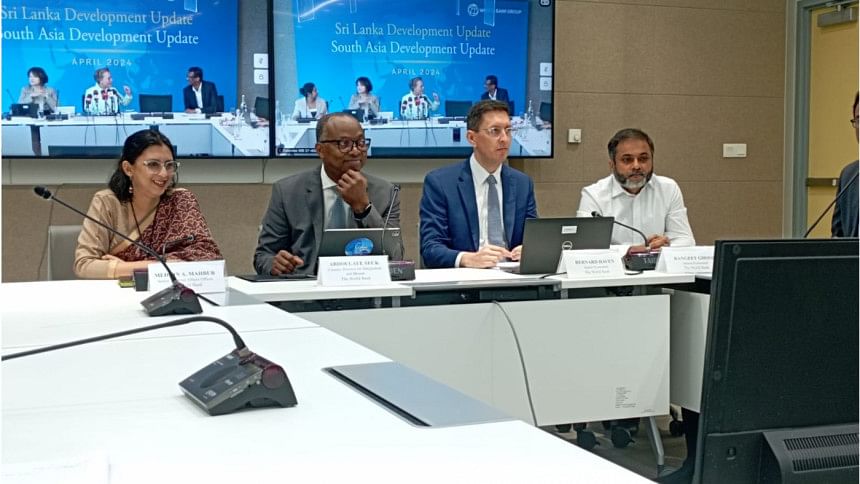Bangladesh can raise three times more VAT if policy and compliance gaps addressed: World Bank

Bangladesh has the potential to collect three times more value-added tax (VAT) if policy and compliance gaps can be reduced, the World Bank said today.
The recently updated Income Tax Act (2023) is an opportunity to increase income tax collection by expanding the tax base through improved compliance and tax services, it said in its Bangladesh Development Update report.
The special focus of the report is how domestic revenue mobilisation can be strengthened to support the country's development strategy. Bangladesh's revenue as a share of GDP is currently 8.2 percent of GDP, among the lowest in the world and significantly below peers.
"Critical public investments in energy, transportation, municipal infrastructure, and human capital development are significantly constrained by the very low levels of government revenues. Reforms to increase domestic revenue generation will be critical for sustaining future economic growth."
It said administrative reforms could modernise manual and paper-based processes and enhance transparency. Policy reform will be required to transition from trade-based taxes to income and consumption taxes.
Bangladesh remains highly reliant on trade-related taxes, more so than peer countries. The country is preparing to graduate from LDC status in 2026.
Through its National Tariff Policy, it has committed to reducing the current high levels of protectionist tariffs and para-tariffs, which will promote international trade but can reduce trade-related taxes in the short term.
"This is an opportunity to move towards a tax structure consistent with an upper middle-income country, by reducing the current reliance on indirect taxes and expanding direct taxes," said the WB.
"A tax structure aligned with that of competitors, coupled with an improved business climate, can gradually reduce the necessity of maintaining large tax expenditures to attract investment."

 For all latest news, follow The Daily Star's Google News channel.
For all latest news, follow The Daily Star's Google News channel. 








Comments